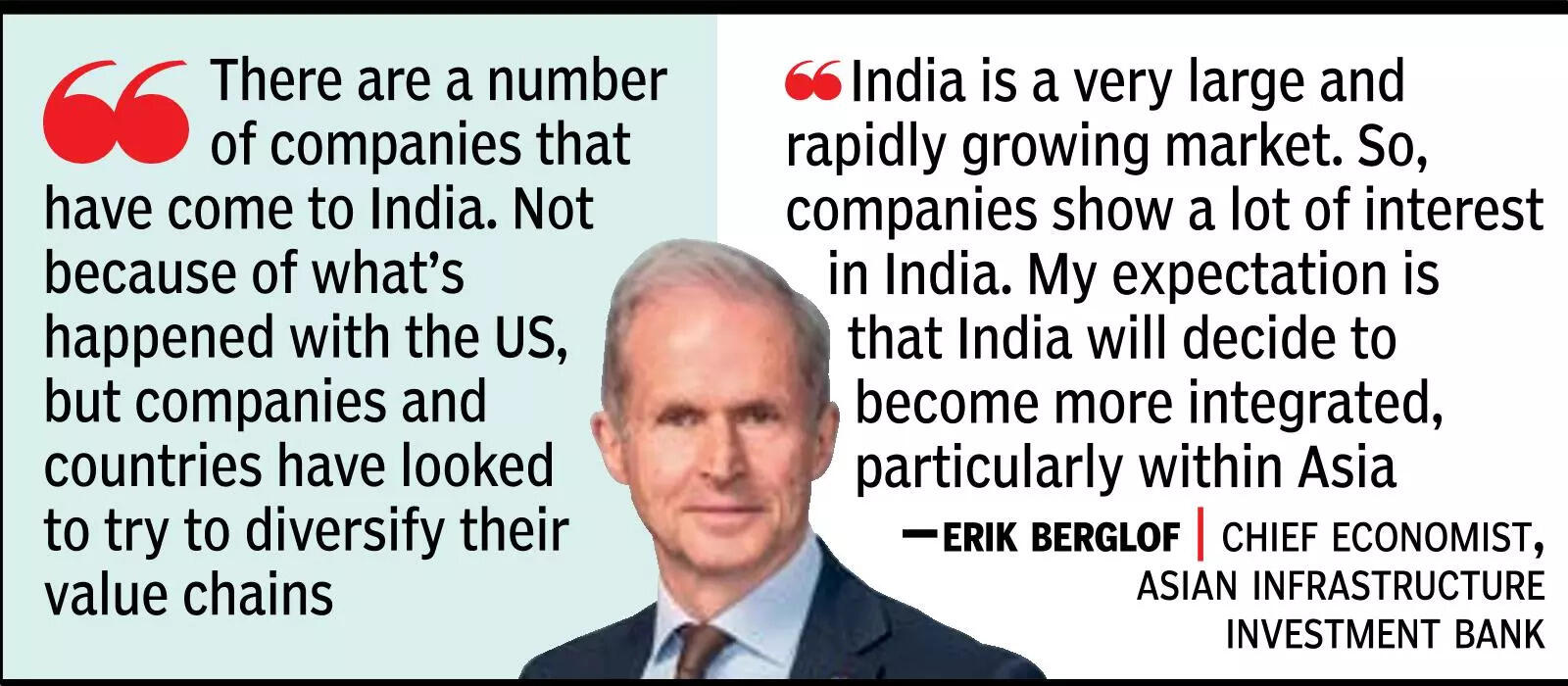NEW DELHI: Asian Infrastructure Investment Bank chief economist Erik Berglof says that US tariffs have created more uncertainty than the Covid pandemic or the global financial crisis and argues that global supply chains are here to stay. Excerpts from an interview with TOI:What do you make of current global situation in the wake of the tariffs and trade restrictions?It creates a lot of uncertainty globally, and in individual countries. Unfortunately, India is one of the countries that has been most affected by this. The policy uncertainty, which is unprecedented, is even bigger than it was during Covid and the global financial crisis. It will have very significant costs for investment and trade, and the overall impact on economic growth will be significant. We are getting some uncertainty resolution, which is good. But we still have some way to go. It’s very hard to predict how the US-China relationship is going to play out. But what is clear is that we globally will end up with much higher tariff levels.As someone who’s based in Beijing, how is China negotiating the challenge? It has much more leverage than, say, India?The Chinese government was very well prepared. They had been expecting this. As you said, they have significant leverage in some areas and that has helped balance the conversation.Are you seeing greater trade diversion from China, which is a big worry?Unfortunately, there is a lot of delay in the data, particularly on investment and what’s happening to global value chains and so on. But we are still talking more about adding countries to the value chain rather than completely changing the value chains and certainly not shortening them in near-term. So, from a Chinese perspective, this is not yet such a big deal. What they do worry about is that some of this is being used to push China out of value chains. That’s where they have pushed back. With India, there are some examples where China has been quite a tough negotiator to make sure that bilateral negotiations between US and individual countries don’t affect China. When I look at the outcome, this is still under control. There are some movements to Vietnam, to India. China plus one is still the predominant pattern.How successful has this diversification been and which countries have benefited? India was hoping to be a gainer…India has for some very significant parts. What Apple and Foxconn have done, for example. There are a number of companies that have come to India. Not because of what’s happened with the US, but companies and countries have looked at how to diversify their value chains. But it’s not so easy because these value chains are driven by very strong efficiency pressures, and they have over a long time worked up very close relationships within these value chains.

Given the value chains and cost advantages in developing countries, how successful will be US’ strategy to use tariffs for reshoring?If you look at what’s happened to global value chains over the last 20-30 years, it’s a remarkable shift away from advanced economies to emerging economies. So many countries, particularly countries in Asia, have been able to join these value chains because of this fragmentation that allows you to enter with even a very small part of the value chain if you can live up to the standards. These global value chains will be very robust. It’s half of world trade and it’s there to stay. It’s a huge opportunity for India to join these value chains and also create its own value chains.Indian companies have been very focused on the domestic market. Do you see that changing? Is there a need to change the high tariff structure in India?India is a very large and rapidly growing market. So, companies show a lot of interest in India, both Indian and foreign. My expectation is that India will become more integrated, particularly within Asia. In the medium run, it is important for India to open up and make Indian companies more integrated, more interested in some of the collaborations within Asia. Obviously, you need to be sensitive to the needs of the farmers and the rural economy, but there can be a lot of benefits for India.


